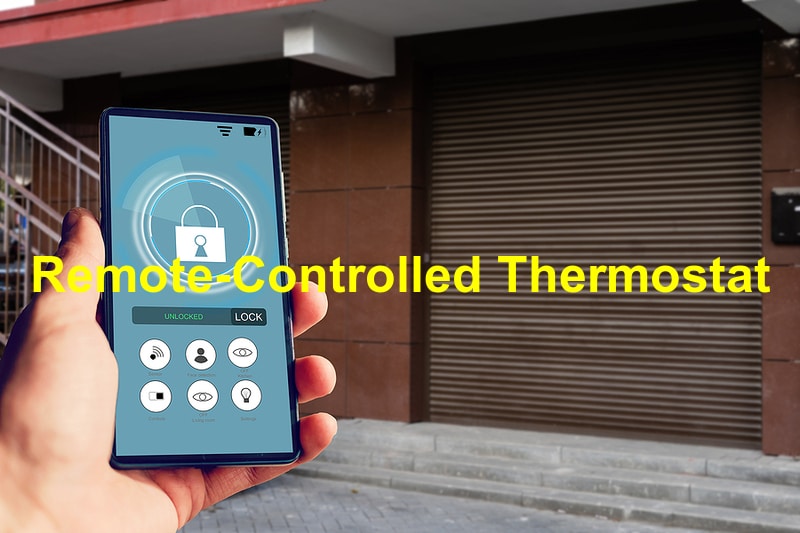Is a thermostat that can be controlled remotely worth buying? Let’s weigh the advantages and disadvantages to help you decide if this feature suits your home and lifestyle:
Pros of Remotely Controlled Thermostats:
- Convenience: Remote control thermostats enable you to adjust your home’s temperature from anywhere, using a smartphone app or a computer. This convenience is especially valuable if you want to make changes while away from home.
- Energy Efficiency: Many remotely controlled thermostats offer energy-saving features like programmable schedules and learning algorithms. They can adapt to your preferences and adjust heating and cooling accordingly, potentially reducing energy consumption and costs.
- Flexible Scheduling: You can set customized schedules to match your daily routine. This means your home can be comfortably warm or cool when you’re there and save energy when you’re not.
- Smart Home Integration: Remotely controlled thermostats often integrate with smart home ecosystems like Amazon Alexa, Google Assistant, or Apple HomeKit. This allows for voice control and seamless integration with other smart devices in your home.
- Monitoring and Alerts: Some thermostats provide monitoring capabilities, allowing you to track your home’s temperature and receive alerts if it falls outside of your specified range. This feature can be valuable for maintaining ideal conditions, especially during extreme weather.
Cons of Remotely Controlled Thermostats:
- Cost: Thermostats with remote control capabilities tend to be more expensive upfront than basic thermostats. However, the potential energy savings may offset the initial cost.
- Complexity: The advanced features and settings of remote thermostats can be overwhelming for some users. Installation and programming may require technical expertise or professional assistance.
- Power Outages: During a power outage, remotely controlled thermostats may lose connectivity and programmed schedules. You’ll need to reset them once power is restored.
- Privacy Concerns: Remote control thermostats are connected to your home network, which could potentially make them vulnerable to hacking or privacy breaches. Ensuring strong network security and regular device updates is essential.
- Compatibility: Not all heating and cooling systems are compatible with remote thermostats. Verify that the thermostat you choose will work seamlessly with your HVAC system.
- Maintenance: Remote thermostats may require periodic firmware updates to ensure optimal performance and security. Keeping up with these updates is necessary for trouble-free operation.
In summary, the decision to purchase a thermostat with remote control capabilities depends on your preferences, lifestyle, and budget. If convenience, energy efficiency, and customization are essential to you, a remotely controlled thermostat can be a valuable addition to your home. However, be aware of potential downsides, such as cost and complexity, and ensure compatibility with your HVAC system before making a decision.
References: PC Magazines, DIY Controls

